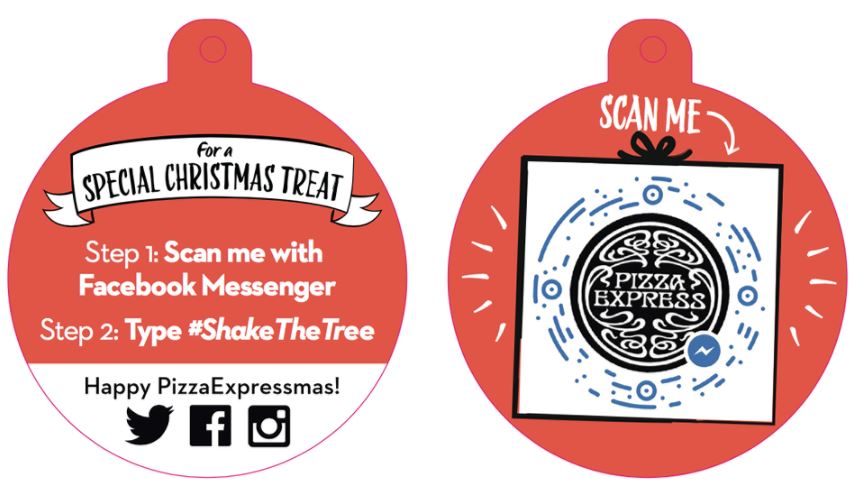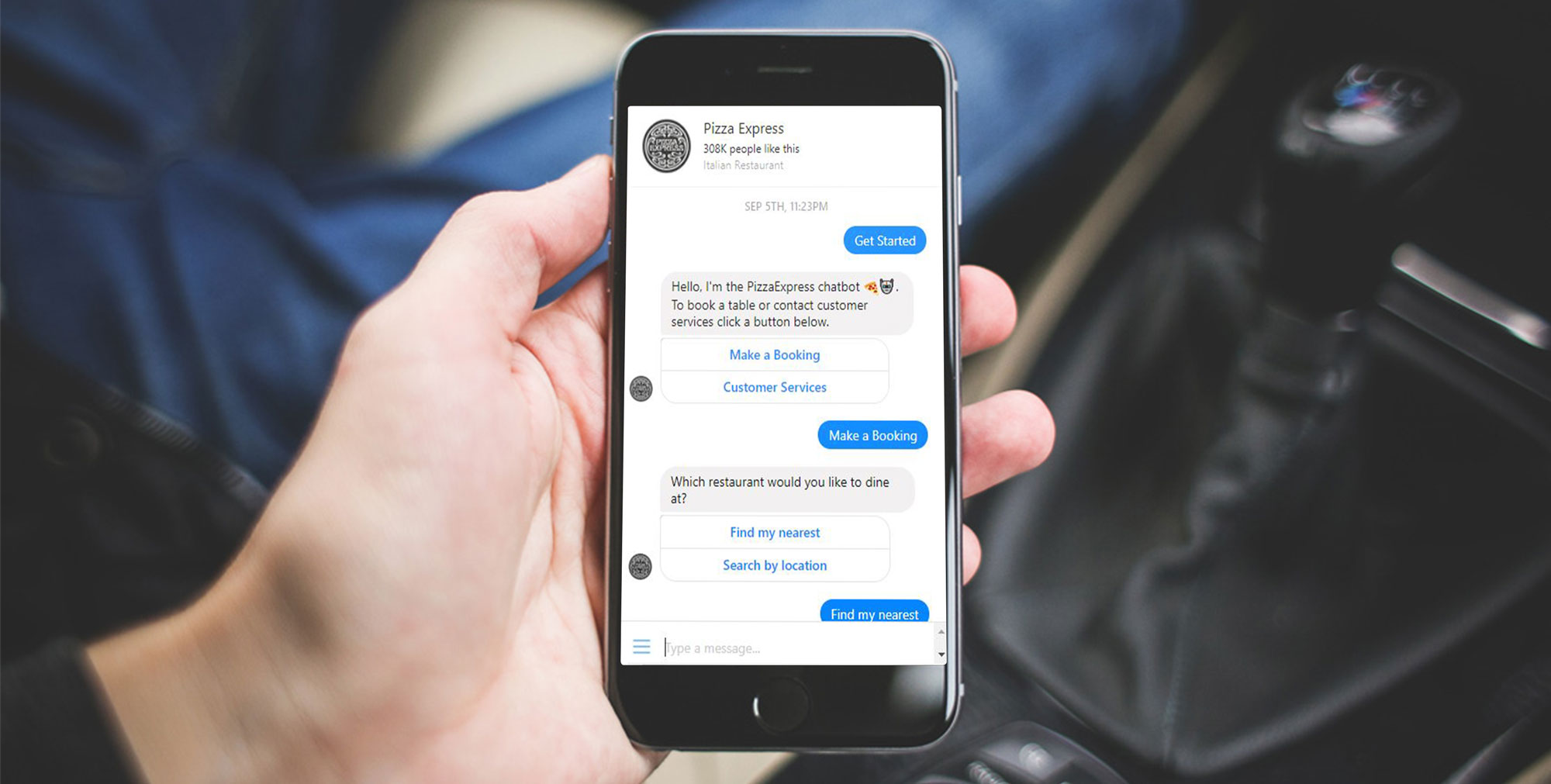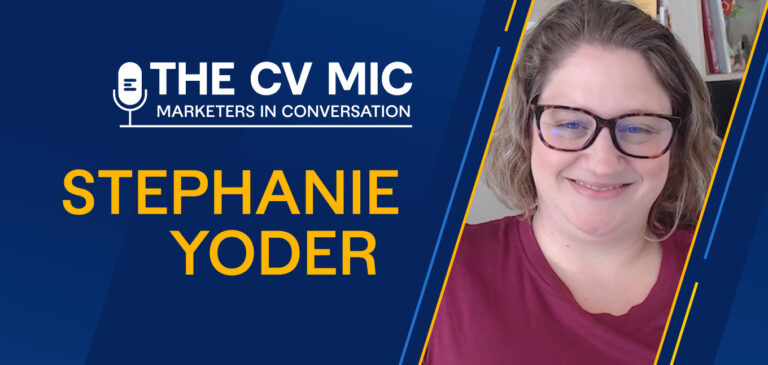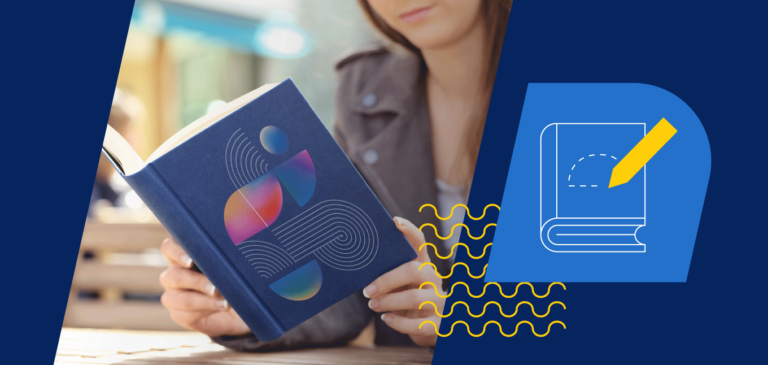The holidays are the perfect time to have a little fun with technology. People are in the mood for a break from the expected routine. A touch of the whimsical is just what they like, and it could pay off big-time for your business. Find out how you can blend and leverage Facebook Messenger games and chatbots to draw more people into your store this holiday season.
The Pizza Express success: Shake the tree
At the beginning of December 2016, a UK-based restaurant chain, Pizza Express, developed a simple game called “Shake the Tree.” Diners would enter the restaurant and be seated at a table, where they would notice the on-site marketing with a Facebook Messenger code and a prompt to scan the code to play the game while waiting for their food.
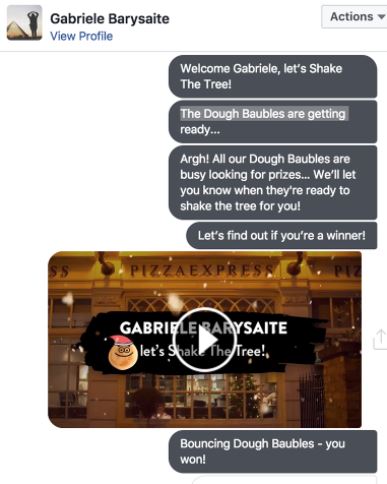
By the end of the first two weeks, more than 75,000 players had played the game, and the word-of-mouth marketing impact was incredible. Thanks to the overwhelming response to the game, Pizza Express received massive amounts of data, which it could harvest with Facebook’s Custom Audiences tool.
Currently, Pizza Express reports over “165,000 unique users engaged with the campaign.” They claim to have reached over 12 times the number of users they originally targeted. Based on reactions to the campaign on Facebook, the response to the game was 99.9% positive.
How the campaign was designed
To create their Facebook game, Pizza Express worked with EchoMany, a company that crafts real-time, one-on-one video marketing campaigns, among other marketing products. Pizza Express placed scannable Facebook Messenger QR codes throughout its locations in the United Kingdom.
When a customer scanned the code, a Messenger conversation with a chatbot would open on the user’s phone, inviting the user to type in “#ShakeTheTree” to play the game.
The chatbot would respond to the entered hashtag, and then the EchoMany technology would kick in, showing an instantly customized video that included the user’s name.
The video showed the user whether he or she won a prize or lost the game. For the instant winners, the chatbot would instruct them to “Claim your free Tastecard by clicking here!”
The structure of the game was simple. Yet the response was overwhelming. Who could resist a chance to win free food? Plus, the personalized video and the human-like interaction of the chatbot appealed to customers.
Chatbots and games through Facebook Messenger
The “Shake the Tree” game primarily used Facebook Messenger’s chatbot functionality, with embedded video — but businesses are taking the gaming idea much further, thanks to Facebook’s new platform for Messenger games. Using one or the other, or both, you can design a holiday marketing campaign that gives you incredible success, both online and within your brick-and-mortar locations.
Why customers like Facebook Messenger games
One advantage of designing a simple game through Facebook Messenger rather than some other app is the ability to streamline the customer experience. The games don’t have to be downloaded separately; users never have to leave the Messenger app. Tim Love, Pizza Express’s senior manager for social media, says, “We want to make every customer’s journey with us as simple as possible. So being able to book a table or download a voucher without leaving the Messenger app makes things very easy.”
What else do users like about Facebook Messenger games? They appreciate the fast load times and the spirit of friendly competition since high scores are posted automatically. Graphics are not console quality, but they are good, and the gameplay is smooth and easy to learn.
How to build your own Facebook Messenger game
Creating a Facebook Messenger chatbot game is easy, as long as you have someone on your team with the necessary skills; and even if you haven’t created a game before, Facebook offers guidance that makes the process fairly simple. Facebook recommends creating the game with HTML5 (WebGL), because it has widespread support across nearly all browsers. No plug-ins are needed to install it, which makes it a better choice from the consumer’s perspective as well.
Even if you’re more familiar with Adobe Flash as a game engine, it’s a good idea to choose an alternative, preferably one with open web standards. Flash is leaving the scene by the end of 2020, and it will no longer be updated or supported after that time. If you already have Facebook Messenger games that run using Flash, now is the time to consider migrating those games to a different technology.
To build your game, use one of the following 2D or 3D HTML5 engines.
- Phaser.io (2D)
- ImpactJS (2D)
- CreateJS (2D)
- GameMaker Studio 2 (2D)
- PixiJS (2D)
- Scirra Construct 2 (3D)
- Egret Engine (3D)
- Layabox (3D)
- PlayCanvas (3D)
- Babylon JS (3D)
Cross-platform engines that have capabilities beyond the web are also good choices. Check out game-making engines like Defold, Unity, Cocos or Unreal.
How to monetize a Facebook Messenger game
Maybe you’re interested in more than increased foot traffic and new customer data. According to Facebook for developers, you can make money off the games you create in a few different ways. First of all, you can create objects or services that your users can buy within the app. Because of the Facebook Payments Platform (which now is natively integrated with Facebook Messenger), your users can pay you via mobile carrier billing, PayPal, or credit cards. You can set prices for various upgrades, items, or features within the game. As long as you have a nicely addictive game that keeps people wanting more, they will probably pay for extras if you keep the pricing on par with games similar to yours.
You can also make it possible for people to send gifts to others through your Facebook game or chatbot. Around the holidays, this type of monetization can be especially appealing. People are in the gifting mood anyway; and when a friendly chatbot suggests sending a small gift to someone through the Messenger game, users are more likely to do it. For a pizza restaurant, a user might be able to send someone the gift of a free pizza or specialty bread. For some other type of business, the gift might be a certificate valued at a certain amount. You could also prompt users to send each other premium items or upgrades in-game as well.
Facebook also suggests monetizing your game through advertising, ads for virtual goods, payer promotions, and subscriptions. Take an in-depth look at the available options and decide which one makes the most sense for your business.
Backing up the fun with practical services
Following their success with the “Shake the Tree” game, Pizza Express launched another chatbot-based service. This chatbot simply helps customers reserve a table. First, the bot introduces itself, and then it asks which restaurant the customer would like to visit. It can detect the user’s location and offer nearby options. Then it asks for the number of guests and the desired time of the reservation.
It is worth noting that after their success with “Shake the Tree,” Pizza Express came up with a more practical chatbot instead of another game. The value of Facebook Messenger games lies in reaching new customers, creating interest and chatter, and collecting plenty of new data. However, businesses should also have practical, convenient services to back up the fun.
The element of surprise and delight
Remember, an effective game is one that draws people into your locations as well as into Facebook or other social media channels. A game that offers the possibility of immediate, tangible benefits is ideal. Do you have a chain of restaurants? Offer the chance to win a free appetizer or a specialty holiday drink. Do you sell products like clothing or supplies? Perhaps the game could involve a percentage off the customer’s purchase. Imagine stepping into a store and discovering that you can scan a QR code and play a game to get instant holiday savings. Deals like that not only draw people in, they introduce an element of festive fun — of surprise and delight— that goes beyond a paper coupon or a “percent off” email.
If you try out a Facebook Messenger game or chatbot game this holiday season, you can easily track your success through Facebook. Collect data, gauge the increase in foot traffic, and brainstorm ways to draw in even more customers next year!
